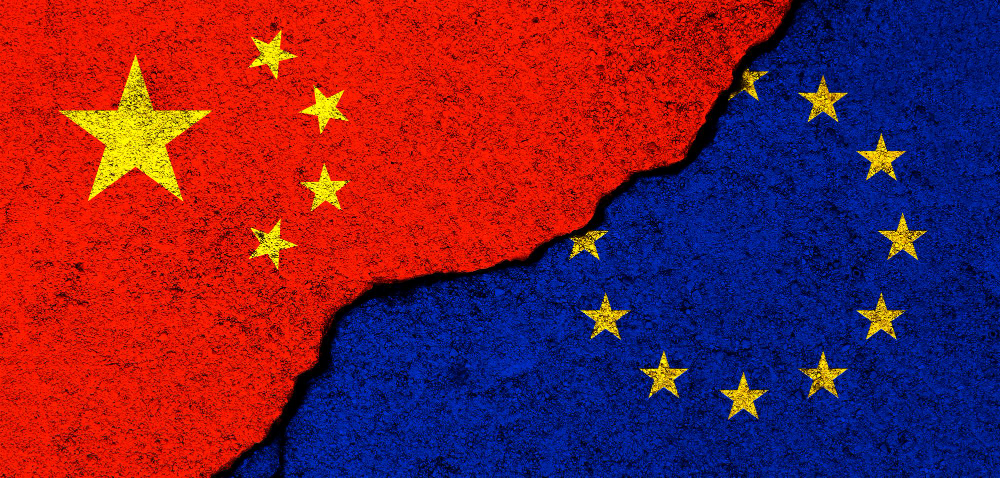Frustration with the US will not suddenly make Europe an ally of China. The EU has plenty of complaints against China, especially its flood of electric-vehicle (EV) exports and support of Russia in its war against Ukraine. But, by making trade with the US more expensive and unpredictable for everyone, Trump has created a powerful incentive for Europe to deepen ties with the People’s Republic.
Moreover, while Trump has pulled the US out of the Paris climate agreement (again), Europe and China both recognize the need for urgent action against global warming. In addition to leading the world in EV and solar-panel manufacturing, China is also the fastest developer of green-energy technologies and nuclear power – an energy option that has gained renewed interest in Europe.
The Ukraine war and the effects of Chinese exports on European producers are undoubtedly sticky issues; but the need to insure their economies against American chaos may motivate the two sides to compromise. What a deal might look like is hard to say, but there are many options. China could increase its European imports, set limits on its exports to Europe, and allow its currency to appreciate. It could also share technologies to help bolster European industries such as AI, EV batteries, and electric transmission. This would turn Chinese government subsidies in these sectors, which Europeans view as giving China an unfair advantage, into a benefit for European producers and consumers. Europe, for its part, could promote Chinese participation in more global decision-making processes – something that Chinese leaders have long sought.
While China is unlikely to abandon Russia, it has exhibited pragmatism when it comes to Chinese interests. If it wants to show goodwill to the Europeans, it can increase imports of Ukrainian foodstuffs to offset some of the loss of American agricultural imports, support Ukrainian refugees, use its expertise in building large infrastructure projects to help with Ukrainian reconstruction, and prevent Chinese mercenaries from joining Russia.
The recent visit of Spanish Prime Minister Pedro Sánchez to Beijing, and a planned meeting with EU leaders that Chinese President Xi Jinping will host in July, clearly indicate that the world’s second- and third-largest economies are well aware of the benefits of increased cooperation. If they pursue it successfully, the trade war may not be all bad for China, and what looks like an economic crisis may also be a geopolitical opportunity.




ROME – With little economic or political rationale, US President Donald Trump has introduced some of the highest tariffs in more than a century, and imposed them on nearly every economy in the world. Then, suddenly, despite his insistence that the tariffs were here to stay, he paused the new “reciprocal” tariffs for all countries except one, keeping in place an across-the-board 10% levy for the rest. For China, Trump added a 50% tariff on top of the two 10% tariff hikes in February and March and the 34% “reciprocal” tariff levied on his “Liberation Day” (which he then increased to 84% by executive order). The result? An effective minimum tariff rate of 145% on all Chinese goods entering the United States (with a temporary reprieve for consumer electronics).
China, which had retaliated with proportional tariffs to the two initial 10% hikes and had hoped for a deal with Trump, has responded to his last two hikes with matching increases, bringing the overall tariff on US imports to 125%.
The Trump administration is betting that the Chinese government cannot withstand the economic losses from a sharp reduction in US trade. Just under 20% of Chinese GDP comes from exports, and around 14.7% of its exports go to the United States – China’s second-largest export market in 2024. A 145% levy on these exports will exact a heavy toll on Chinese firms, workers, and families at a time when China is struggling to re-energize a stalling economy.
But Trump’s bizarre and aggressive launch of his tariffs handed the Chinese government an important political advantage. Unlike economic downturns that can be attributed to domestic policy, Trump’s bluster and indiscriminate, punitive tariffs against small, poor countries like Lesotho, or islands populated only by penguins, will lead most ordinary Chinese to blame economic pain on “US bullying.” The Chinese government repeatedly emphasizes the mutual benefits of trade and that “no one wins” in a trade war. At the same time, it has called for national solidarity. The less reasonably America behaves, the more domestic support the Chinese government will receive.